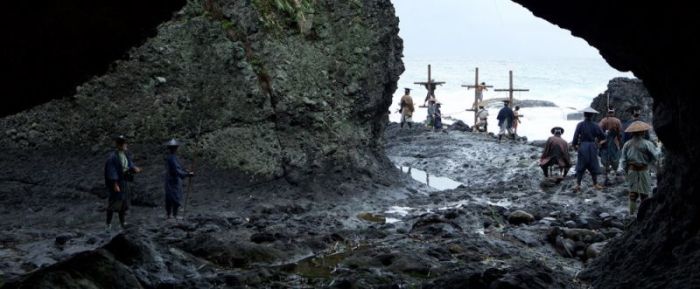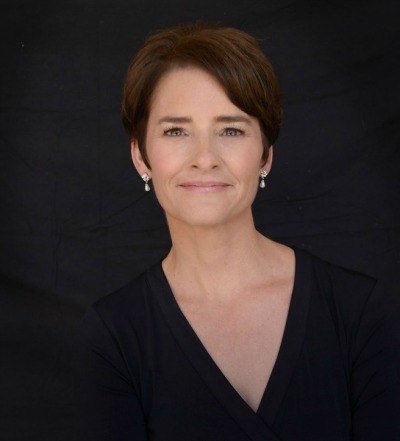Why Are Christians Praising Scorsese's 'Silence'? (Movie Review)
[Spoiler alert: To adequately discuss the message of this movie, it's necessary to know the plot and climax, which I divulge.]

My favorite movies always include what my theater professor in college called "exaltation" — a character who remains true to his principles and therefore is exalted, even if he loses or dies. This is why Braveheart remains one of my favorite movies, despite the fact that I hate violence and rarely watch R-rated films. To this day, seeing Scottish Knight William Wallace (portrayed by Mel Gibson) endure torture and death for the freedom of his countrymen inspires me. Similarly, To End All Wars, which depicts the true story of a Christian P.O.W., crucified by his Japanese captors during World War II, deeply moves me too.

These stories remind me of the martyrs of the church, who chose to be burned at the stake or fed to wild animals rather than recant their faith. Their faithful witness caused the Church to flourish in the most inhospitable environments, and prompted second-Century theologian Tertullian to remark: "The blood of the martyrs is the seed of the church."
As I watch these films, I can't help but wonder if I would have the courage to follow in their footsteps. And they prompt me to pray that God would make me faithful.
The new Martin Scorsese film Silence, which had a limited debut on Dec. 23 and fully releases on Friday, turns all of this on its head. Instead of exaltation, it climaxes with a priest committing apostasy — trampling on an image of Christ, allegedly because Jesus told him to do so.
Though the film certainly has important redeeming qualities, and is largely being praised by the Christian community, it also is deeply disturbing — and potentially hazardous to one's spiritual health.
The movie, based on the historical novel by Shusaku Endo, tells the story of two 17th-Century Portugese priests, who willingly enter Japan during a time of intense persecution of the church. Their goal is to find their mentor, Father Cristovao Ferreira (based on the historical figure by the same name) who's gone missing, and reportedly has renounced his faith.
Once in Japan, the two priests find a remnant of faithful Christians and begin ministering to them in secret. Eventually though, they and their secret congregants are discovered by Japanese authorities and urged to do the unthinkable — apostatize (or renounce their faith) by trampling on a fumie, a crudely carved image of Christ.
One priest dies in custody. But the second, Father Rodrigues (based on the historical Giuseppe Chiara), is taken to Nagasaki where he reunites with his old mentor, Father Ferreire. To his horror, Rodrigues discovers that Ferreira has renounced his faith. He's also become a Buddhist, taken a wife offered by Japanese authorities, and is writing a book refuting Christianity.
Disillusioned and confused, Rodrigues is then forced to watch Christians be tortured, and is told that the only way to end their suffering is to apostatize and trample on the fumie. Then a voice (apparently Christ's, though it's open to interpretation), who has been silent to this point, speaks: "Trample!" he says. "It was to be trampled on by men that I was born into this world. It was to share men's pain that I carried my cross."
Rodrigues tramples and then follows in the footsteps of his mentor, becoming a Buddhist, marrying, and serving as an informant for the Japanese government. However, the film hints that Rodrigues secretly maintained his faith during his apostate years, and at the end, shows him holding a cross as his dead body is ceremonially burned.
Certainly the notion that Christ would condone apostasy to end someone else's suffering is deeply problematic.
Jesus left very clear instructions about renouncing Him, saying: "(W)hoever disowns me before others, I will disown before my Father in heaven." (Matt. 10:33)
As believers, we know this verse, so the moral Catch-22 in Silence creates a great deal of inner emotional turmoil. We cannot accept the decision Rodrigues made, yet how can we not? This is what makes Silence so potentially treacherous.
Catholic author and editor of Aletia, Daniel McInerny, suggests that Silence raises "the sinister possibility that Christian faith and love are internally conflicted, making a lack of integrity, at least in extreme circumstances, inevitable."
I agree with McInerny. The movie actually reminded me of a quiz my son was given by a public school teacher, which presented numerous no-win moral dilemmas and then required him to choose. The only purpose I could imagine for the quiz was to undermine a Judeo-Christian ethic, especially since it was given as part of a unit on the Salem Witch Trials.
Silence has this same disastrous potential. It raises a serious theological dilemma, but offers no solution — at least not a biblically viable one.
Silence also suggests that one can maintain his faith in complete private, and still be saved. Again, I say suggest because the film doesn't settle issues; it merely raises them. But what is the viewer supposed to conclude about Rodrigues clutching a cross at the end?
I tend to agree with the historic church position that the sin of apostasy can be forgiven. But I am less willing to concede that someone who for decades suppressed his faith, and even colluded with persecutors of the church, would inherit the Kingdom of heaven.
As James says, faith without works is dead, and: "You believe that there is one God. Good! Even the demons believe that, and shudder."
Given these troubling elements, it's somewhat surprising how enthusiastically Silence has been received by Christians.
Author Brett McCracken wrote in his review of the film for Christianity Today: "Silence presents a textured, realistic Christian faith, and has the potential to build the faith of the devout and the skeptical alike, bearing fruit in the church's witness and mission in the world."
Similarly, the evangelical flagship, Wheaton College, has made the novel, Silence, a core text for its new Christ at the Core curriculum, and required reading for every incoming freshman.
Even Pope Francis, who invited Scorsese to the Vatican to view the film, reportedly told the filmmaker: "I hope the story of the film, knowing the book, bears much fruit."
What McCracken especially likes about the film is its ability to teach the church about "cross-cultural missions and contextualization," noting a scene revealing that the missionaries' concept of God may have been lost in translation. When Ferreira and Rodrigues meet, Ferreira alleges that the Japanese had misinterpreted "Son of God" to mean "Sun of God." As a result, they allegedly weren't worshipping God at all, but the actual sun.
These are the kinds of challenges missionaries regularly face. And certainly, reminding Westerners of this possibility has merit.
But McCracken also contends that the film is missional. Though the image of Christ is repeatedly trampled throughout the film, this tragedy is also a triumph. "It captures the distinctive power of Christianity: power in weakness."
Similarly, Wheaton College President Philip Ryken writes about Silence, "Endo's Silence has a message for the church in every culture . . . . (Father Rodrigues') vain ambition for missionary glory is chastised by disappointment, failure, and excruciating pain. At the same time, he moves from seeing the face of Jesus in perfect beauty to seeing it disfigured by suffering." This, Ryken asserts, "is the authentic Jesus that every culture needs."
To my eyes, though, all Silence portrays is weakness. There is no triumph because triumph comes in enduring to the end. Jesus would not have triumphed had he gotten off the cross, knowing that his death and resurrection would eventually lead to the brutal execution of all but one of his apostles.
Jesus triumphed because he didn't focus on the suffering. Instead, Hebrews 12 says, "For the joy set before him he endured the cross, scorning its shame. . ." Similarly, Hebrews urges us: "Consider him who endured such opposition from sinners, so that you will not grow weary and lose heart."
Though Silence is dedicated to "Japanese Christians and their pastors," many Catholic churches in Japan actually banned the novel, Silence. The author Endo even reportedly lost a close friend, a French priest, due to the book's publication. Though I don't support book banning, I certainly can understand why the church and a priest would have that reaction.
I don't think Silence presents a helpful spiritual message, but a potentially harmful one. Yes, it has redeeming qualities. And yes, the questions it raises are worth considering — but in the right context and among believers mature enough to handle its problematic themes. But as a feature film, it's pretty depressing and potentially disillusioning. Rather than exaltation, it features capitulation. And rather than inspiring, it simply deflates and confuses.





























